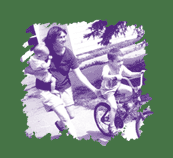






| > | Case Management | |
| > | Family Assessment | |
| > | Family Support | |
| > | Parent Education | |
| > | Substance Abuse and Mental HealthTreatment | |



Mailman School
of Public Health
Columbia University
722 West 168th Street,
8th Floor
New York, NY 10032

|
|
  |
||||||
Family Assessment An assessment is a process for gathering and organizing information. A family assessment does this in ways that can help a family prevent and solve problems. It aims for a full understanding and unbiased view of the family—not just its problems, but also its strengths, values, and goals. Since these are dynamic features of a family, the assessment is an ongoing process of discovery for helpers and families alike. A good family assessment is also about relationship building. Engaging helpers and families in an exploration of strengths, values, and goals helps to build mutual trust and respect between them. This, in turn, often leads to more successful outcomes. This relationship can be built upon when problems arise. In the presence of open communication, families and helpers can work together to identify the informal and formal supports that can reduce or eliminate the factors causing harm or risk. The following principles of family assessment offer the best chance of building strong relationships between helpers and families, while enabling the family to enlist appropriate supports as needed. Principles of Family Assessment Build on strengths: People are more than their problems. Acknowledging and building on their strengths enables the family and the helper to build a plan that uses existing strengths as the basis of the change process. Take a holistic approach: A good assessment looks at all of the factors that affect the family, including all the risk and all the protective factors in the family and the community. It is particularly important to consider the informal resources as well as the formal ones. Join with the family members as a partner: Families know more about themselves than helpers ever will. A partnership with the family helps build the family's sense of control and ability to succeed, while assuring that appropriate supports and services are identified. Tailor services to the family: A good assessment should be specific enough to serve as the basis for a support and service plan geared to a particular family. Set and monitor specific goals: A thorough family assessment often will assist in setting clear, specific, and achievable goals. Click below for additional resources.
Beyond Risk: Improving Assessments to Keep People Safer
|
||||||
|
Disclaimer Free To Grow is a national program supported by the Robert Wood Johnson Foundation and the Doris Duke Charitable Foundation with direction and technical assistance provided by the Mailman School of Public Health of Columbia University. |





